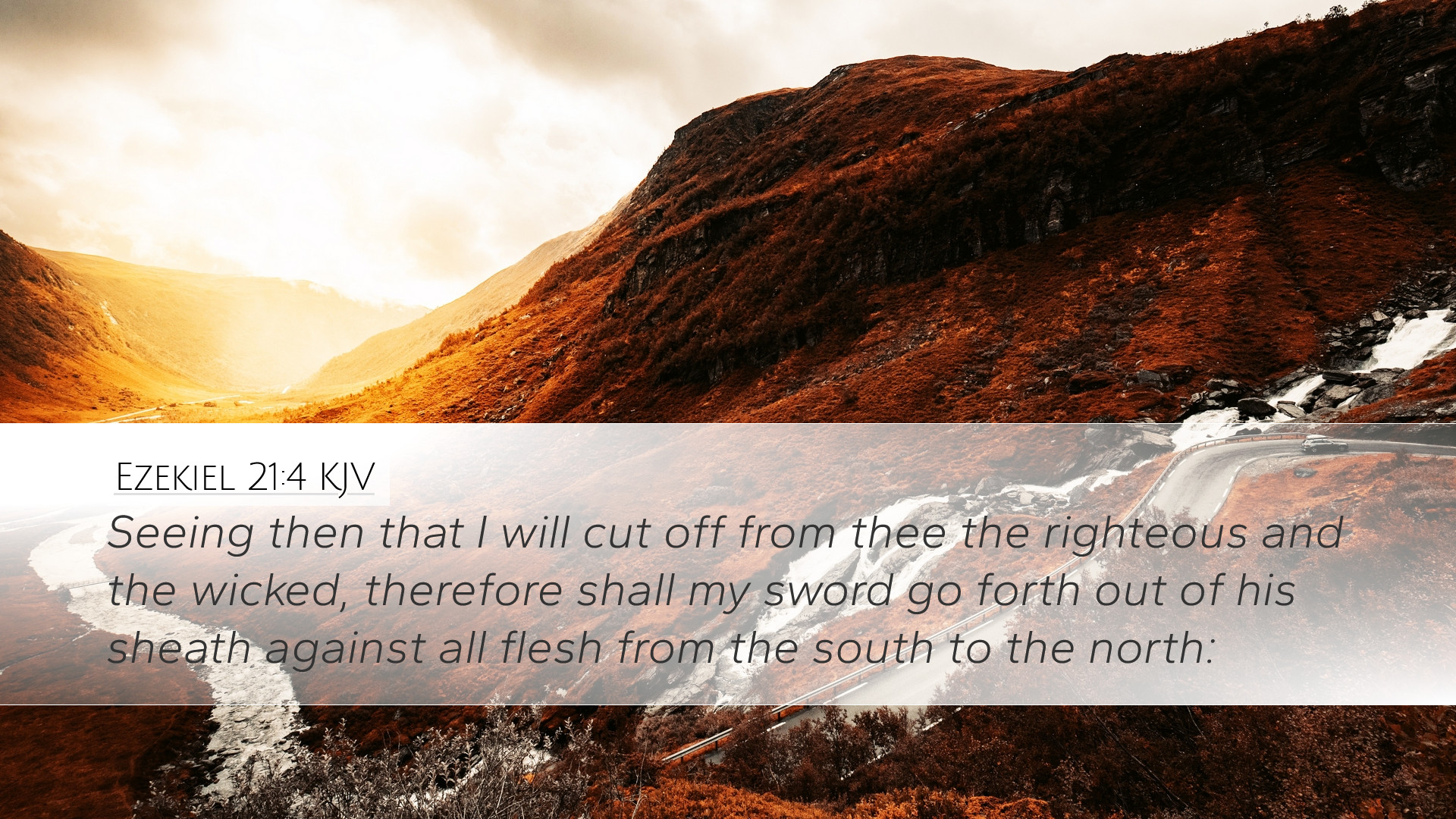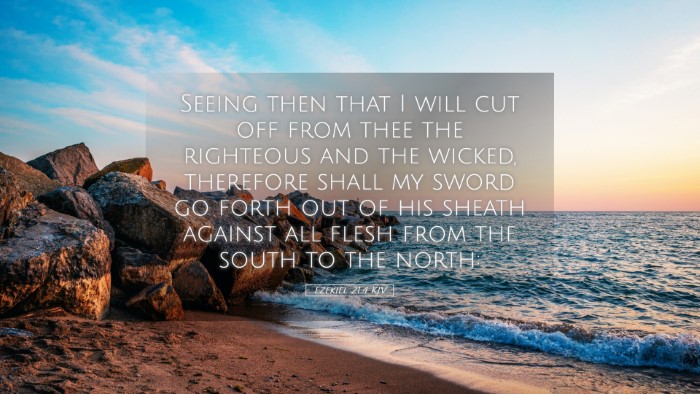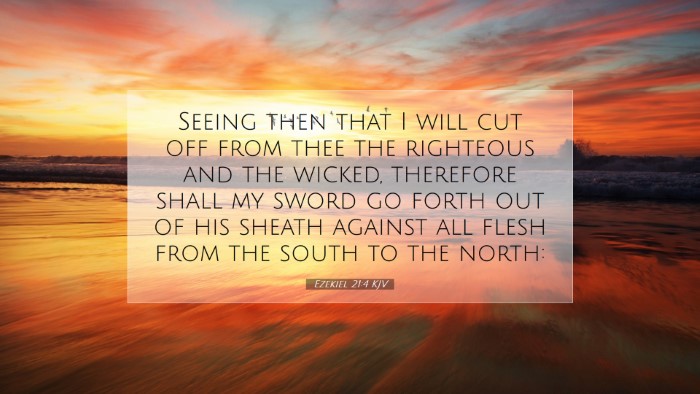Bible Commentary on Ezekiel 21:4
Ezekiel 21:4 states, "Because the sword is against my people, and against all the princes of Israel:
therefore, I will bring my judgments upon them." This verse encapsulates the core message of divine judgment that
resonates throughout the Book of Ezekiel, drawing on themes of accountability, the consequences of sin,
and the sovereignty of God.
Contextual Overview
The Book of Ezekiel is set against the backdrop of the Babylonian exile, where the prophet speaks to a
people grappling with the consequences of their rebellion against God. Ezekiel, called as a prophet,
proclaimed messages of warning, judgment, and eventual restoration, aiming to rekindle the understanding
of God's holiness and justice.
Verse Analysis
The Significance of the Sword:
In this verse, the "sword" symbolizes divine judgment that is about to befall the people. As Matthew Henry notes,
the sword represents not only physical violence but also God's displeasure directed toward His people for
their transgressions. This imagery serves to invoke fear and urgency among the Israelites to recognize
their waywardness.
The People and Princes of Israel:
The phrase "my people" signifies the covenant relationship between God and Israel. Albert Barnes emphasizes
that even the leaders—"all the princes of Israel"—will not escape judgment, highlighting that no one,
regardless of status, can stand apart from God's laws. This reflects the principle that leadership carries
significant responsibility, and failures at the top have dire effects on the whole community.
Theological Implications
Ezekiel 21:4 presents critical theological concepts that resonate throughout scripture:
-
Divine Justice:
God's justice demands accountability. Adam Clarke asserts that God's judgment is deserved and necessary
for moral order. This serves as a poignant reminder of the reality of sin and the consequences it incurs.
-
The Nature of God:
This verse sheds light on God's character—while merciful, He is also just. His judgments reveal His
holiness and commitment to righteousness.
-
The Call to Repentance:
Implicit within the declaration of judgment is a call for repentance. God desires for His people to
turn back to Him, an echo found throughout the prophetic literature.
Application for Today's Believers
For contemporary readers, Ezekiel 21:4 serves as a stark reminder of the consequences of turning away
from God. Pastors and theologians can draw upon this verse to emphasize the need for vigilance in their
faith and the importance of repentance.
Reflection Questions:
- In what areas of our lives might we be disregarding God's commands?
- How can we hold our leaders accountable to live righteously?
- What steps can we take to ensure we respond to God's call for repentance?
Conclusion
Ezekiel 21:4 encapsulates profound truths about God's justice and the serious nature of sin. As
we study this verse, we are called to examine our hearts, acknowledge God's sovereignty, and embrace
the grace offered through Christ. Through understanding the weight of judgment, we can fully appreciate
the magnitude of forgiveness, leading us to live lives that honor God and reflect His holiness in a
fallen world.


